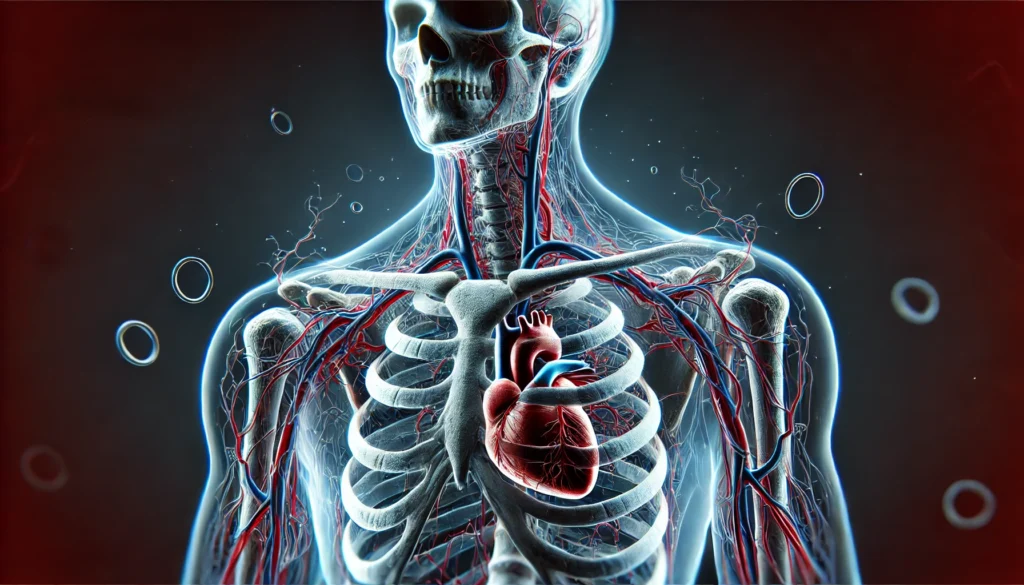Understanding the Role of Vitamins in Holistic Nutrition
In the realm of holistic nutrition, vitamins are fundamental to maintaining optimal health. Among these essential nutrients, vitamins A and K stand out for their critical roles in numerous physiological processes. The body relies on a balanced intake of bioavailable nutrients to function efficiently, and these vitamins contribute significantly to various bodily functions, including vision, bone health, immune response, and blood clotting. Unlike synthetic supplements that may not be fully absorbed, bioavailable forms of vitamins A and K ensure that the body derives maximum benefits with minimal waste. To fully appreciate their significance, it is crucial to explore their specific benefits, dietary sources, and the science behind their absorption and utilization.
You may also like: What Is Bioavailability in Nutrition? A Simple Explanation of How Nutrients Are Absorbed and Utilized
What Is Vitamin A and K Good For? A Comprehensive Overview
Vitamins A and K perform distinct yet complementary roles in human health. Vitamin A, a fat-soluble nutrient, is primarily known for its impact on vision, skin health, and immune system function. It exists in two forms: preformed vitamin A (retinol) found in animal sources and provitamin A carotenoids from plant-based foods, which the body converts into retinol. On the other hand, vitamin K is essential for blood clotting, bone metabolism, and cardiovascular health. Unlike vitamin A, which is stored in the liver, vitamin K is rapidly used by the body and requires regular replenishment.
Understanding the synergistic relationship between these vitamins is crucial. For instance, while vitamin A supports immune resilience and cellular regeneration, vitamin K ensures proper blood flow and skeletal strength, factors that are essential for long-term health. As more people embrace holistic nutrition, recognizing the importance of these vitamins in maintaining overall well-being becomes paramount.

The Science Behind Vitamin A: Functions and Benefits
Vitamin A is a crucial component of various biological functions, with its most notable impact on vision. The retina requires retinal, a derivative of vitamin A, to form rhodopsin, a protein necessary for low-light and color vision. Deficiency in vitamin A can lead to night blindness and, in severe cases, permanent vision impairment.
Beyond its ocular benefits, vitamin A plays a significant role in immune function. It enhances the body’s ability to fight infections by promoting the production and function of white blood cells. Research has shown that individuals with vitamin A deficiency are more susceptible to infections, including respiratory conditions and gastrointestinal disorders.
Another critical function of vitamin A is its role in skin and cellular health. Retinoids, compounds derived from vitamin A, are widely used in dermatology to treat acne, psoriasis, and premature aging. These compounds support cellular turnover, aiding in the repair of damaged skin and reducing inflammation. Holistic practitioners often emphasize the importance of consuming vitamin A-rich foods rather than relying solely on synthetic skincare products.
The Power of Vitamin K: A Key Player in Blood Clotting and Bone Health
Vitamin K is often overlooked compared to other essential nutrients, but its role in human health is indispensable. One of its primary functions is to regulate blood clotting. The body relies on vitamin K to synthesize prothrombin, a protein that facilitates proper coagulation. Individuals with vitamin K deficiency are at risk of excessive bleeding, even from minor injuries.
Aside from its role in coagulation, vitamin K is crucial for bone health. Studies indicate that it helps in the regulation of osteocalcin, a protein responsible for binding calcium to bones. Without adequate vitamin K, calcium may accumulate in arteries instead of bones, leading to an increased risk of cardiovascular disease. This highlights the importance of consuming adequate vitamin K-rich foods such as leafy greens, fermented soy products, and dairy.
Vitamin A to E: Understanding the Spectrum of Essential Nutrients
While focusing on vitamins A and K, it is also beneficial to understand their interaction with other essential vitamins, particularly those within the spectrum of vitamin A to E. Each vitamin within this range contributes uniquely to overall health. For instance, vitamin D enhances calcium absorption, complementing vitamin K’s role in bone health, while vitamin E acts as a powerful antioxidant, protecting cells from oxidative stress.
The interdependence of these vitamins underscores the importance of a balanced diet. Holistic nutrition emphasizes the consumption of whole foods that naturally provide these essential nutrients in bioavailable forms. Rather than relying solely on isolated supplements, a diet rich in colorful fruits, vegetables, healthy fats, and proteins ensures comprehensive nutritional benefits.
Is Vitamin K Water Soluble? Understanding Its Absorption and Storage
Unlike water-soluble vitamins, which dissolve in water and are excreted through urine, vitamin K is fat-soluble. This means it requires dietary fat for absorption and is stored in fatty tissues and the liver. However, vitamin K differs from other fat-soluble vitamins in that it is rapidly metabolized and used by the body, necessitating regular intake through diet.
There are two main forms of vitamin K: K1 (phylloquinone) and K2 (menaquinone). While K1 is found predominantly in green leafy vegetables, K2 is present in fermented foods and animal products. Research suggests that K2 is more bioavailable and effective in directing calcium to the bones rather than arteries. As such, a well-balanced diet incorporating both forms of vitamin K is essential for long-term health.
The Role of Holistic Supplements in Enhancing Vitamin Absorption
While whole foods are the best sources of vitamins A and K, some individuals may require supplements due to dietary restrictions or specific health conditions. Holistic supplements provide bioavailable nutrients that enhance absorption and utilization. For instance, pairing vitamin A with healthy fats improves its absorption, while combining vitamin K with vitamin D ensures optimal calcium metabolism.
Choosing high-quality, minimally processed supplements is crucial in holistic nutrition. Many commercially available supplements contain synthetic additives and fillers that may reduce bioavailability. Opting for natural sources, such as cod liver oil for vitamin A or fermented natto for vitamin K2, ensures that the body receives the most benefits.

Frequently Asked Questions (FAQ)
1. What is Vitamin A and K good for in terms of long-term health?
Understanding what is Vitamin A and K good for can help optimize health and prevent deficiencies. Vitamin A plays a crucial role in maintaining vision, immune function, and skin health. Vitamin K, particularly K1 and K2, is essential for blood clotting and bone strength, reducing the risk of osteoporosis. Recent research suggests that Vitamin K may also support cardiovascular health by preventing arterial calcification. Incorporating both vitamins into your diet through whole foods or supplements ensures long-term benefits for overall well-being.
2. Can you take multiple vitamins at once, or should they be spaced out?
The question of “should I take all my vitamins at once” depends on the types of vitamins being consumed. Fat-soluble vitamins such as Vitamin A to E require dietary fat for proper absorption and are best taken with meals. Water-soluble vitamins like Vitamin C and B-complex can be taken at any time but should be spread throughout the day for optimal benefits. Taking too many vitamins simultaneously can sometimes cause digestive discomfort or reduce absorption due to nutrient competition. Consulting a healthcare provider can help create a structured supplementation schedule that maximizes nutrient uptake.
3. Is Vitamin K water-soluble or fat-soluble, and why does this matter?
A common question is, “is Vitamin K water-soluble?” The answer is no—Vitamin K is fat-soluble, meaning it is best absorbed when consumed with dietary fats. This distinction is important because water-soluble vitamins are excreted quickly, requiring frequent replenishment, while fat-soluble vitamins are stored in the body. Proper absorption of Vitamin K is crucial for its role in blood clotting and calcium metabolism. To ensure effectiveness, pair Vitamin K-rich foods like leafy greens with healthy fats such as avocado or olive oil.
4. What vitamins should not be taken together due to absorption interference?
Many wonder, “what vitamins should not be taken together?” because some nutrients compete for absorption. For example, calcium and iron should not be taken at the same time, as calcium inhibits iron absorption. High doses of zinc can interfere with copper levels, leading to deficiencies over time. Similarly, fat-soluble vitamins like Vitamin A to E should not be overconsumed together, as excessive amounts may lead to imbalances. Understanding these interactions helps optimize nutrient intake and prevents unintended deficiencies.
5. What vitamins can I take together daily to improve overall health?
People often ask, “what vitamins can I take together daily?” to ensure they are making smart supplementation choices. Certain vitamins work synergistically, such as Vitamin D and K for bone health, or Vitamin C with iron to enhance absorption. Magnesium complements Vitamin D by aiding its metabolism, while B vitamins often function best when taken as a complex. Creating a daily supplementation plan that includes these complementary nutrients can optimize their effectiveness. Consulting a professional can further refine a routine that suits individual health needs.
6. Can I take Vitamin C and D together, or should they be spaced apart?
A common concern is, “can I take Vitamin C and D together?” and the answer is yes, as they do not interfere with each other’s absorption. Vitamin C is water-soluble, supporting immune health and collagen production, while Vitamin D is fat-soluble, aiding in calcium absorption and bone strength. Taking them together with a meal can enhance overall nutrient utilization. However, pairing Vitamin D with Vitamin K is often recommended for improved calcium regulation. This combination helps prevent calcium buildup in arteries while ensuring proper bone mineralization.
7. What supplements should not be taken together due to potential side effects?
The topic of “what supplements should not be taken together” is crucial for safe supplementation. For example, high doses of Vitamin E and blood-thinning medications can increase the risk of excessive bleeding. Iron and calcium compete for absorption and should be taken separately to maximize their benefits. Additionally, taking multiple fat-soluble vitamins, such as Vitamin A to E, in excess can lead to toxicity over time. Understanding these interactions prevents negative side effects and enhances nutrient efficiency.
8. Can you take vitamin supplements while already consuming vitamin-rich foods?
Many wonder, “can you take vitamin supplements while having vitamins from food?” and the answer depends on dietary intake. A balanced diet rich in whole foods often provides sufficient vitamins, reducing the need for excessive supplementation. However, certain lifestyle factors, such as stress or poor absorption, may necessitate additional vitamins. Monitoring nutrient levels through blood tests can help determine if supplementation is necessary. The goal should always be to complement the diet rather than rely solely on supplements.
9. What vitamins should not be taken with magnesium due to potential interactions?
The question “what vitamins should not be taken with magnesium?” is relevant since magnesium influences numerous bodily functions. Magnesium can interfere with calcium absorption when taken in high doses, leading to an imbalance in bone health. It may also reduce iron absorption, making it important to space out iron and magnesium supplements. However, magnesium pairs well with Vitamin D, as it helps regulate calcium metabolism. Understanding these interactions ensures proper mineral balance and overall health benefits.
10. What vitamins to take with Vitamin D to improve absorption and benefits?
Many ask, “what vitamins to take with Vitamin D?” because it plays a key role in calcium metabolism and immune function. Pairing Vitamin D with Vitamin K helps ensure calcium is directed to bones rather than arteries, preventing calcification. Magnesium also enhances Vitamin D metabolism, supporting bone density and overall health. Omega-3 fatty acids further support Vitamin D’s anti-inflammatory properties, promoting cardiovascular health. Taking these vitamins together optimizes their benefits, ensuring a well-rounded approach to supplementation.

Conclusion: Embracing the Power of Vitamins A and K in Holistic Health
Incorporating vitamins A and K into a holistic nutrition plan is essential for maintaining overall well-being. These vitamins play pivotal roles in vision, immunity, bone health, and cardiovascular function. Understanding their significance allows individuals to make informed dietary choices that support long-term health.
By focusing on nutrient-dense whole foods and bioavailable supplements, individuals can harness the full potential of these vital nutrients. Whether through leafy greens, fatty fish, or carefully selected supplements, ensuring adequate intake of vitamins A and K is a cornerstone of holistic well-being. As awareness of these essential nutrients grows, embracing a diet rich in bioavailable vitamins will continue to be a powerful strategy for achieving optimal health.
vitamin a benefits, vitamin k benefits, what is vitamin a and k good for, holistic nutrition, bioavailable nutrients, vitamin a to e, is vitamin k water soluble, vitamin a for vision, vitamin k for bone health, immune system support, blood clotting vitamins, fat-soluble vitamins, vitamin a sources, vitamin k2 benefits, best foods for vitamin a, best foods for vitamin k, holistic supplements, natural vitamin absorption, vitamins for overall health, nutrient-dense diet.
Further Reading:
The Fat-Soluble Vitamins: A, D, E, and K
The health benefits of vitamin K
Everything you need to know about vitamin A
Disclaimer
The information contained in this article is provided for general informational purposes only and is not intended to serve as medical, legal, or professional advice. While NewsHealthWatch strives to present accurate, up-to-date, and reliable content, no warranty or guarantee, expressed or implied, is made regarding the completeness, accuracy, or adequacy of the information provided. Readers are strongly advised to seek the guidance of a qualified healthcare provider or other relevant professionals before acting on any information contained in this article. NewsHealthWatch, its authors, editors, and contributors expressly disclaim any liability for any damages, losses, or consequences arising directly or indirectly from the use, interpretation, or reliance on any information presented herein. The views and opinions expressed in this article are those of the author(s) and do not necessarily reflect the official policies or positions of NewsHealthWatch.

